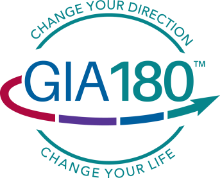Nonalcoholic fatty liver disease (NAFLD) occurs when more than 5-10% of the liver’s weight is fat and the cause isn’t linked to alcohol. We’re seeing a marked increase in younger patients who have this condition and offer the hope that with lifestyle changes, progression of the disease can be slowed, stopped and even reversed.
According to the American Liver Foundation, it’s estimated that 100 million people in the United States have NAFLD and it is now the most common form of liver disease in children, more than doubling in the past two decades. Without intervention, NAFLD can lead to cirrhosis and even liver cancer.
No medications are available for NAFLD, but there are underlying conditions that contribute to the condition that can be addressed.
- Being overweight:Adopt a healthy diet with less sugar and fat and increase physical activity.
- High blood fat levels including triglycerides and LDL (bad) cholesterol; diabetes or prediabetes; and high blood pressure: Make lifestyle changes and properly take any prescribed medications to manage these conditions.
Melissa Mahan Conner, clinical director of GIA 180, shares that she sees a lot of NAFLD in overweight patients and that it’s a result of our very sad Standard American Diet (SAD), which is short on fiber, fruit and vegetables and high in sugar, animal fat and saturated fat. “A GIA 180 patient I treated knew that he had NAFLD for years but did not understand it was something he could potentially reverse,” she said.
“Unfortunately, he had progressed to cirrhosis by the time he was referred to our clinic for weight loss. Thankfully, with weight loss and better eating habits, he has been able to decrease the fat in his liver and slow the progression of cirrhosis. He told me he never gave much thought to what he was eating or how he could change not only his weight, but also his health by changing what he ate. He lost 50 pounds, kept it off through the yearlong maintenance plan and significantly reduced his blood pressure and cholesterol, which resulted in less medication.”
At GIA 180, we offer nutrition and weight loss solutions with a trained coach and understand how to treat the underlying condition of obesity that contributes to NAFLD. Contact GIA at 865-588-5121 for more information.


